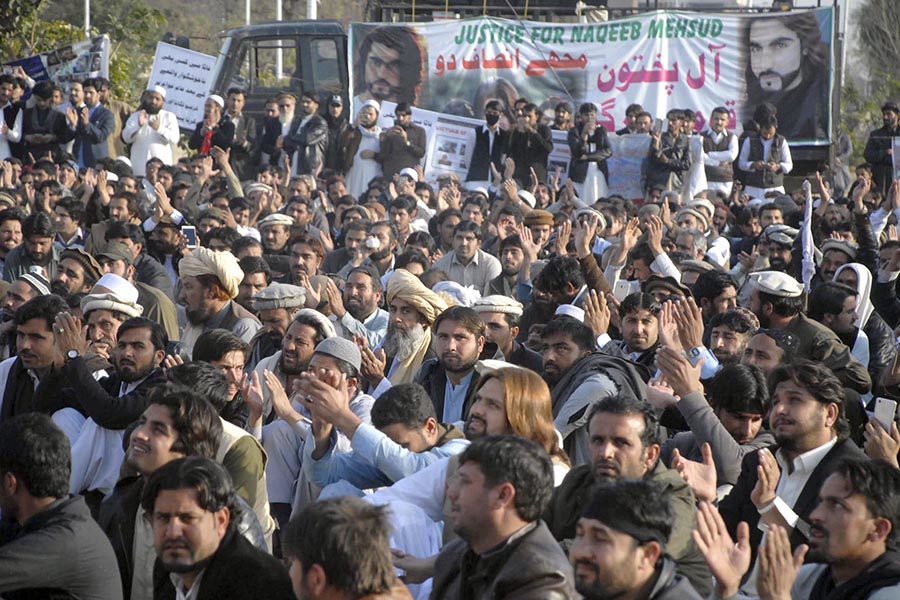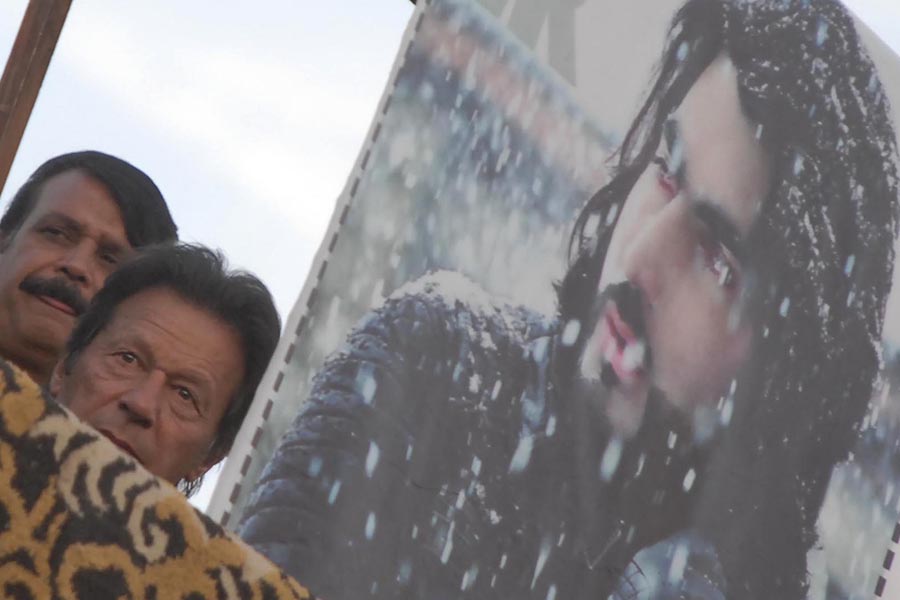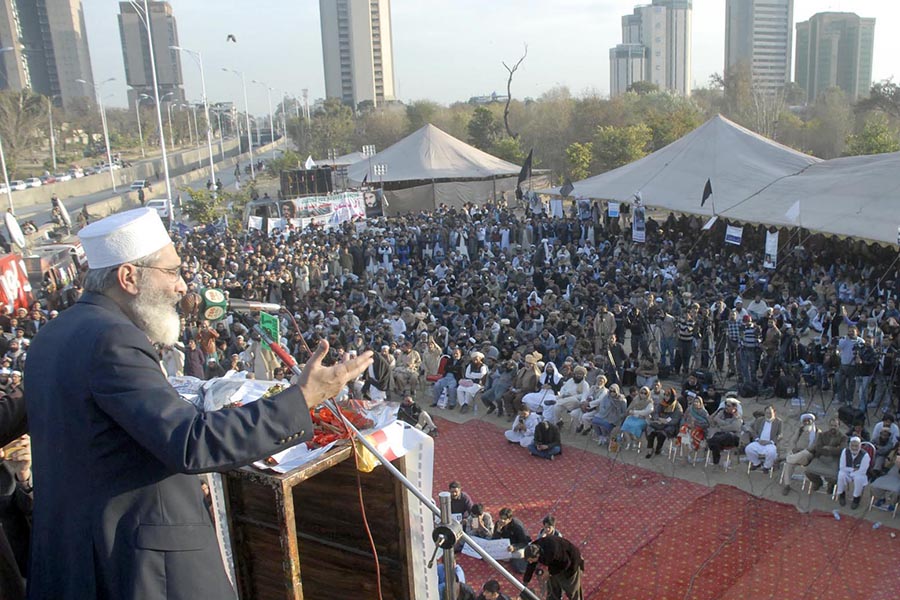It’s been over a week. During the cold nights, the crowds have thinned and swelled. Political leaders, lawyers and civil rights activists have come and gone. Promises have been made and promises have been forgotten. Hundreds of Pashtun men from across the country continue to sit outside Islamabad’s press club in protest .
Their foremost demand is justice for Naqeebullah Mehsud, a young man from South Waziristan, who was killed in a staged encounter on January 13 in Karachi by a notorious police officer, Rao Anwar. Till the publishing of this report, Anwar is on the run. Law enforcement and intelligence agencies, tasked by the Supreme Court to pluck him out, have not been successful in locating him.
Anwar was last seen in the capital, trying to fugitively board a flight to Dubai. There are unconfirmed reports that he may still be in Islamabad, where the Pashtun men are staging their peaceful sit-in and calling for his immediate arrest.
It is unclear if the Rao Anwar will be found before the Court’s 10-day deadline expires. Nonetheless, these men, young and old, who have travelled from Waziristan, Kohat, Bannu, Dera Ismail Khan, Tank and Buner, amongst other places, vow to stay put.
Mehsud’s unlawful killing is not a first. It is in fact, say the protesters, just one example of the kind of oppression Pashtuns have to endure across the country, especially in the Federally Administered Tribal Areas, where seeking justice is difficult.

Their list of grievances is long. The tribal areas, spanning seven agencies, are still being run under a draconian colonial law, the Frontier Crimes Regulation (FCR). Young Pashtun men are often ethnically profiled and targeted as members of the Taliban. Entire tribes are punished for the crimes of a single individual. The federal government’s plans to merge FATA with the Khyber Pakhtunkhwa province, to bring it at par with the developed areas of Pakistan, have been bunkered by religious parties, who see the mainstreaming as a threat to their vote bank.
Waziristan in FATA, divided into North and South, was once a hotbed for terrorists. A 2009 military offensive in South Waziristan by the Pakistan Army cleared the area and allowed the displaced families to return. Yet, life has not been easy. One demand the protesters are pressing for is that the government remove deadly landmines from their areas. Other demands include setting up a judicial commission, monitored by the chief justice of Pakistan, to investigate extrajudicial killings as well as the recovery of all missing persons.
“Whenever there is a bomb blast somewhere in the country they line up our people for investigation,” Ayaz Khan, a former ambassador, a participant, tells Geo.tv, “How is that fair?”
To date, prominent political leaders who have visited the camp to express solidarity with the protesters, include Imran Khan of the Pakistan Tehreek-e-Insaaf, Siraj-ul-Haq of the Jamaat-e-Islami, and leaders of the Awami National Party, amongst others. Few from the ruling party, the Pakistan Muslim League Nawaz, have shown up.
On February 6, a council of 15 elders, representing the protesters, met Prime Minister Shahid Khaqan Abbasi at his office. While the premier promised to look into their demands, it has been three days since.
“If we do not get justice then we will go and sit outside the parliament,” says Khan, “and if we are disappointed again then, I don’t want to say this but, we will launch a movement of civil disobedience in every city. What choice do we have?”
Several federal ministers contacted by Geo.tv declined to comment. “We played our part,” said a minister from the ruling party, on the condition of anonymity.
A meeting was arranged with the prime minister who assured them that their demands will be fulfilled. Otherwise, this [protest] concerns the provincial not the federal government.”




